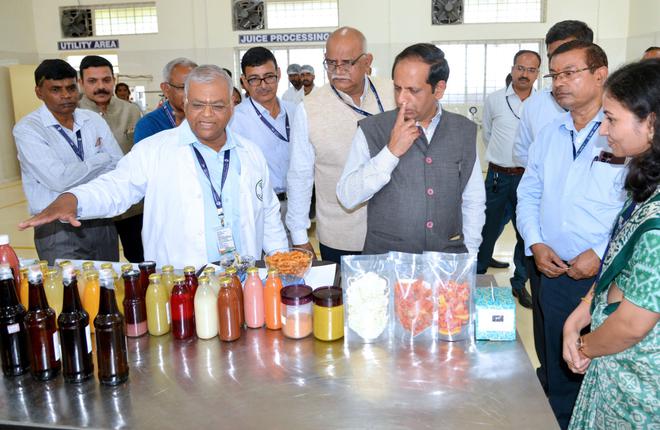
Imagine a clinic where the patients are not human, but plants.
Among the new facilities inaugurated at the Indian Council of Agriculture Institute (ICAR) - Indian Institute of Horticultural Research (IIHR) on Wednesday was a state-of-the-art Plant Health clinic, established with an estimated budget of ₹1.08 crore under the Rashtriya Krishi Vikas Yojana (RKVY).
Diagnostic services
The clinic will help farmers and other horticultural growers with diagnostic services and management advisories for their crops. “We conduct isolation of pathogen here. When they bring their crop samples, we run tests and find out if the disease is viral, bacterial or fungal. If we do not get to know them immediately, then we isolate them,” explained a scientist from IIHR.
He added that the disease information would then be passed on to the extension division from where it will be used to create awareness about the disease. “We issue advisories every 15 days, including information about common diseases in the particular crop at that particular time and if it will be useful for fruit, vegetable, and flower growers.”
On average, these advisories about new diseases and emerging diseases are currently being provided to 50 farmers in a month. With the clinic, IIHR plans to double this number. While the farmers are not charged in the clinic, private parties would have to pay.
A state-of-the-art Seed Production Centre has also been set up in the premises of IIHR at a cost of ₹2.53 crore which was provided by HAL under its CSR mandate. This is the first CSR collaboration for ICAR according to the officials. While enhancing the reach and increasing the market share of ICAR-IIHR when it comes to seed varieties, the centre is also expected to increase the turnover of the seed unit from ₹8 crore per annum to ₹16 to ₹18 crore per annum in the next two to three years.
With two tonnes per hour capacity, the unit will consider parameters like purity, germination capacity, and moisture to enhance the quality of the seeds. Instead of using the traditional methods of dusting and slurry coating (which carried health hazards), the seeds here will be coated with polymer which adheres to the seed well. As many as 25 vegetable seed varities, two medicinal and flower seeds, and one fruit seed can currently be processed at the unit.
A Centre for Spawn Incubation and Capacity Development under RKVY (at an estimated budget of ₹1.14 crore) with focus areas including Mushroom Spawn Production, mushroom cultivation, and small-scale industries associated with mushroom machinery and structures among others, was also inaugurated on Wednesday. A Post Graduation Dining Centre, Agri-Business Incubation Centre, Centre of Excellence on Kamalam fruit, Fruit Plant Mall (nursery), and Karnataka Exotic Fruit Farmers Association (KEFA) were also inaugurated by Himanshu Pathak, secretary, DARE, Government of India and DG, ICAR.
Speaking about the prominence of Horticulture crops, Mr. Pathak shared that horticulture production has exceeded food grain production in the country. “While food grain production is 330 million tonnes a year, horticulture crop production is 350 million tonnes per year,” he said. He also said that ICAR-IIHR should now compete on the global level to become the best horticulture research centre in the world.
Dragon fruit growers ask for better marketing and publicity
Since Kamalam or dragonfruit came to Karnataka in 2015, the cultivation area of the fruit has reached 7,000 acres, said S. D. Babu Siddakumar, president, Karnataka Exotic Fruit Farmers Association (KEFA). He said that while the production is around 10,000 tonnes per year in Karnataka, the consumption is less than 1%. “We need help with marketing and advertising for Kamalam fruit. The government should appoint a brand ambassador and provide wide publicity for the fruit,” Mr. Siddakumar said.
To improve the production of Kamalam for sustainable livelihood, and to totally substitute import with domestic cultivation, the Centre of Excellence on Kamalam fruit was inaugurated on Wednesday at ICAR-IIHR. Established through bilateral cooperation, the Mission for Integrated Development of Horticulture, Ministry of Agriculture and Farmers welfare has sanctioned over ₹5.36 crore for the Centre.







